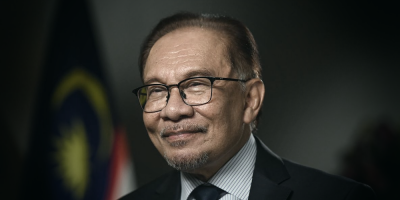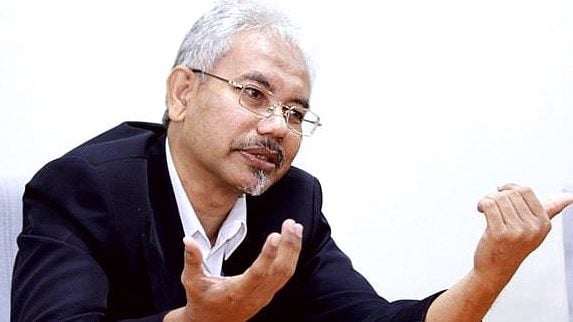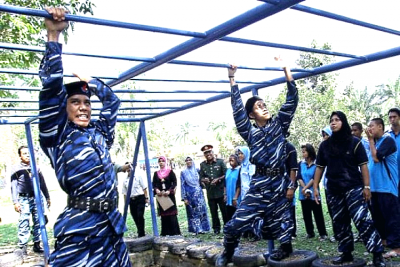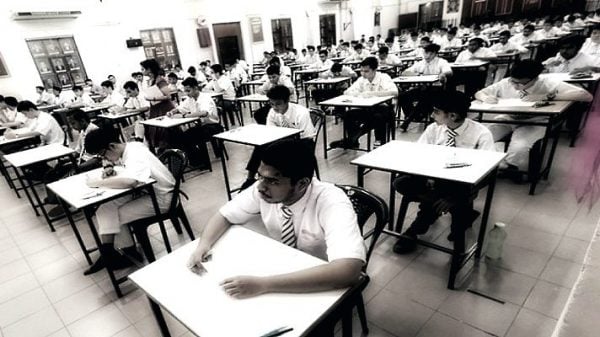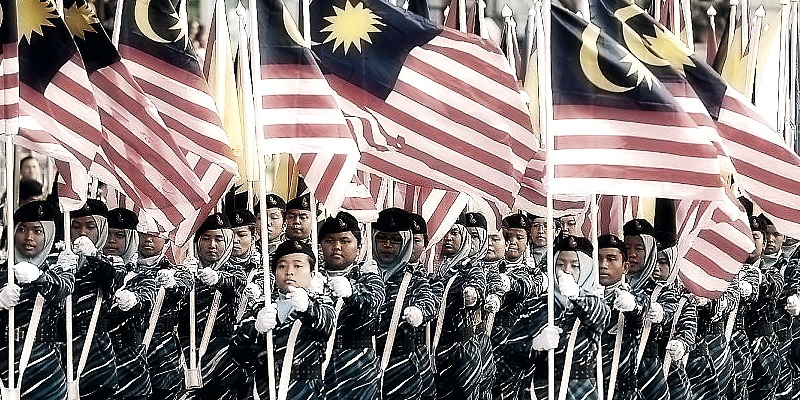
On the eve of Malaysia’s upcoming national election, Professor Tajuddin, who is concerned about the future of the country and people, called for the establishment of a new public servant system, which should set a more reasonable quota for all ethnic groups.
He rejects the prevailing government’s modus operandi practiced by the ethnic-oriented ruling parties which favor a particular race and religion.
Indeed, he has a strong will to see that the severe racial imbalances in the current civil service will be corrected.
According to the civil servant data cited by Tajuddin, there are about 1.274 million civil servants in the country, of which 77.52% are Malays, 12.28% are Sabah and Sarawak Bumiputeras and Orang Asli, 5.75% are Chinese, 3.77% are Indians, and 0.68% are others.
As we all know, the total number of civil servants in Malaysia should be around 1.6 million, not 1.274 million. From this, it can be inferred that the remaining 326,000 ought to be the police and armed forces with Malays occupying overwhelmingly the posts from top to bottom.
Professor Tajuddin believes that it is absolutely necessary to restructure the civil service system, which to me, would serve two main objectives.
First, the current civil service system is too bloated. Too many people will not only overburden the government and taxpayers, but also create problems of lower efficiency because “surplus hands” would normally idle away their time and affect their colleagues.
Second, the highly unbalanced racial ratio of civil servants will affect the trust between the government and the people, leading to alienation and undermining social cohesion.
For example, the ethnic Chinese, who account for 23% of the country’s total population, only account for 5.75% of the civil servants, and the situation of the ethnic Indians is very similar. This seriously affects their sense of belonging to the country.
Tajuddin also suggested that the Malaysian Armed Forces must be racially diverse.
Given that the number of ethnic Chinese and Indians in the armed forces is extremely rare, the impression given to foreigners is that Malaysia does not seem to belong to the ethnic Chinese and ethnic Indians.
Such a state of affairs is a great disadvantage in nation-building and constructing a shared patriotic sentiment and love towards their common homeland.
The lopsided ethnic make-up in the civil and military services is a great disadvantage in nation-building and constructing a shared patriotic sentiment and love towards the country.
National service must be built up
To rectify this, the government must first do it through the national service, which must include male citizens of all races for a period of two years, while nationals caring for a sick parent or for those with substandard physical or mental health can be exempted.
Female citizens can be called up to a certain percentage based on needs, but they must also include all ethnic groups in the country.
As a matter of fact, national service is the best way to inculcate and consolidate patriotic and loyalty consciousness of the youth regardless of race vis-à-vis a shared homeland.
Through sharing a common life and military training of all ethnic groups, it promotes values of appreciation and mutual understanding among the young people towards others with different cultural and religious backgrounds. This will help construct a good foundation of solidarity for their country where they accept each other and feel the need to build a stronger Malaysian society.
Whenever the country is in trouble, they will recognize the urgency to face it together and defend it with a collaborative spirit.
During the two years of national service, Malay language will be the common language of learning, and training for youths of all ethnic groups.
For the ethnic Chinese, Indian and the indigenous youths of East Malaysia, not only will they acquire the national awareness indoctrination, military and organized discipline training, they will also live in a “Vision School” environment as once proposed by the former Prime Minister Mahathir.
In his “Vision School”, Mahathir said children of all ethnic groups should be integrated into the same school with Malay language as the key medium of teaching.
By living with other ethnic groups for two years, non-Malay youths can upgrade their level of Malay language and communication skills, which will be a great advantage for them to deal better with society in the future.
Furthermore, the two-year long atmosphere of the “Vision School” is a contributory factor and a good rationale for us to keep the existing national type Chinese and Tamil language primary schools and Chinese independent high schools.
No politicians can argue for their removal by claiming they do not contribute to national unity.
Finally, I would like to express my heartfelt gratitude to Professor Tajuddin for his thoughtful efforts to set up a more rational vision for the country shared by all our ethnic groups.
In addition, I also sincerely hope that the leaders of the Chinese associations and media can mobilize all sectors of society to respond to and support the National Service Plan, and do their bit to build a better Malaysian society.
(Wong Tai-Chee has his B.A and M.A degrees in Urban and Regional Planning from the University of Paris, and earned his PhD in Human Geography from the Australian National University. After teaching 20 years in Nanyang Technological University, Singapore, he retired in 2013. He then worked as Distinguished Professor for two years at Guizhou University of Finance and Economics, China, and as Dean and Professor at the Southern University College, Johor until the end of 2018. He was Visiting Professor to University of Paris (Sorbonne IV), Visiting Fellow to Pekin University, Tokyo University and University of Western Australia. His main research interests are in urban and economic issues, and more recently on Malaysian politics. Besides his 15 self-authored and edited book volumes, he has written over 100 academic articles and published widely in international journals.)
ADVERTISEMENT
ADVERTISEMENT






